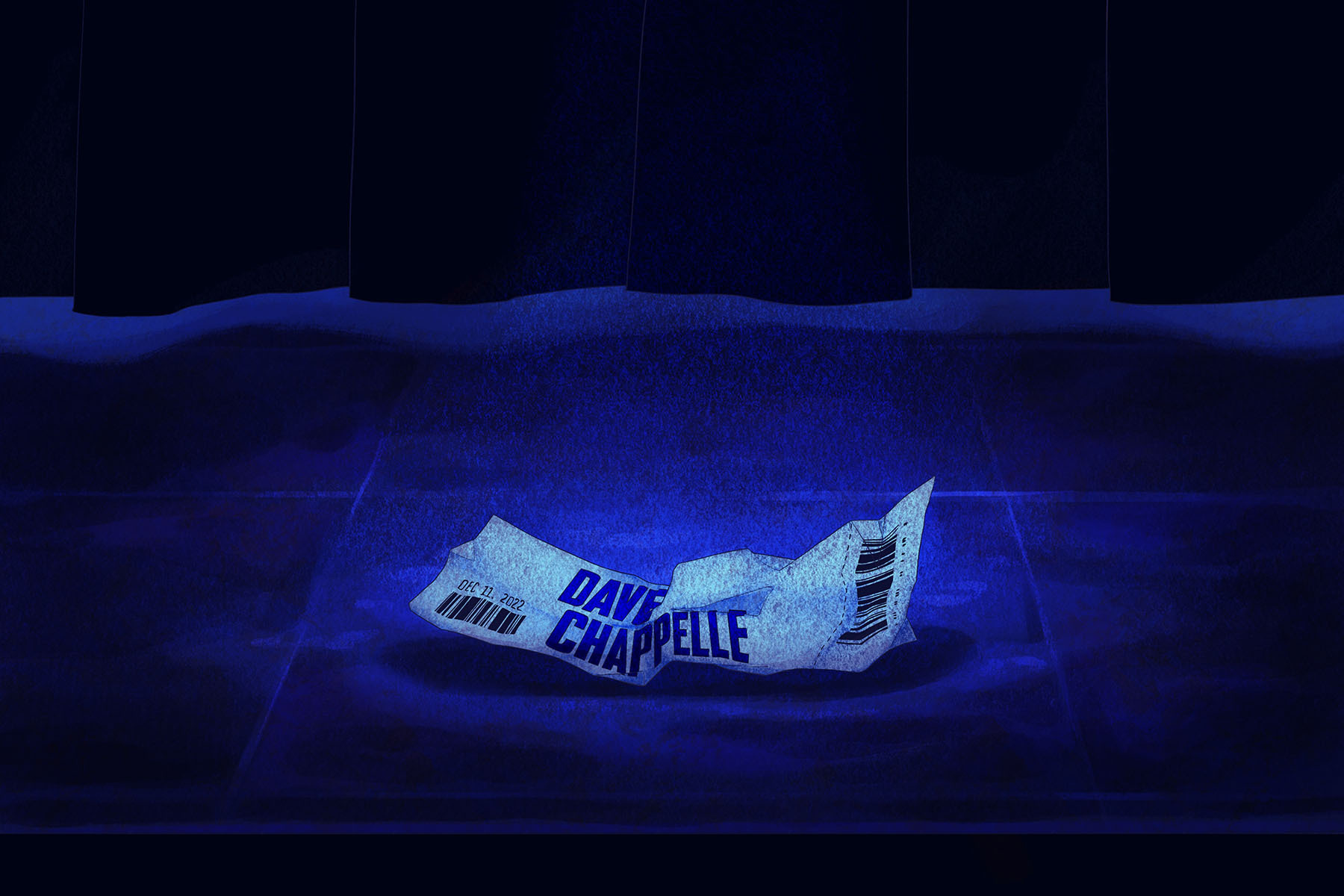CW: Transphobia
Dave Chappelle established himself as a highly-regarded comedian with a strong following, despite the controversial nature of his humor. He pushed boundaries but still managed to navigate the fine line between comedy and offense.
Chappelle started his journey at the age of 14, performing stand-up comedy in clubs in and around Washington D.C. He put in the hard work, performing at night and studying at the prestigious Duke Ellington School of the Arts during the day. His story embodies the classic American Dream and inspires and empowers the Black community, showcasing Chappelle’s multifaceted impact.
Throughout the 1990s, Chappelle continued to pursue his entertainment career, taking on acting roles in popular films like “Half Baked” and “The Nutty Professor” alongside other well-known stars like Eddie Murphy. His highly-acclaimed comedy special “Killin’ Them Softly” further solidified his status as a solo performer.
Chappelle skyrocketed to fame in 2003 with “Chappelle’s Show.” The TV program’s massive success quickly cemented its place in the early 2000s cultural landscape. The sketch show’s enduring relevance has facilitated ubiquitous references to and remakes of the comedian’s titular work.
In 2005, Comedy Central offered Chappelle $50 million to renew “Chappelle’s Show” for a third season. But Chappelle surprised everyone by turning down the offer and fleeing to South Africa.
Chappelle’s rejection of the $50 million elevated his status. By taking a stand against intellectual property rights violations, he gained respect in the comedy community and reinforced his reputation as the “people’s” comedian. Chappelle’s popularity hit an all-time high upon his return to mainstream media in 2013.
Netflix paid Chappelle $20 million per special in 2016, and his Netflix specials reached a wider audience than “Chappelle’s Show.” But, this increased exposure also led to increased criticism.
Chappelle’s propensity toward making incendiary jokes at the expense of marginalized groups seems to have caught up with him. While the comedian remains commercially successful, the respect for his name has diminished considerably over the past few years. A 2018 video, “How Dave Chappelle Dodges Laser Beams,” received nine million views and showcased Chappelle’s ability to handle delicate topics. However, it’s now labeled as unlisted.
Chappelle’s jokes about the transgender community sparked controversy, as he faced backlash for his comments in early Netflix specials. Had Chappelle apologized and avoided further jokes about the community, he could have prevented further criticism. Nevertheless, the comedian denied any accusations of transphobia and went on with the show.
Chappelle persisted in targeting the trans community in his jokes, causing him to appear stubborn and immature. Despite people’s expectations for high-quality humor from the celebrated comedian, his later specials lacked creativity and instead relied on cheap insults.
Chappelle deflected accusations of offending the trans community by shifting focus to another marginalized group. Instead of acknowledging his controversial jokes, he claimed no issue with the trans community, but posed the question, “Why was it more difficult for Cassius Clay to change his name than for Caitlyn Jenner to change her sex?” This diverted attention from the criticism he faced for his trans-related jokes.
In 2022, Chappelle invited Elon Musk to perform with him, which led to more criticism. Musk, who faced his own controversy due to his out-of-touch and reactionary comments, received boos from the audience when he stepped onstage. Chappelle’s choice to platform Musk, despite the backlash, highlights his obstinance in the face of controversy.
Despite his initial success and popularity, Chappelle’s continued disregard for marginalized communities has made it challenging for him to connect with his audience. Previously, as a lesser-known comedian, he could get away with more controversial jokes, but as a high-profile celebrity, his bigotry only intensified.
Chappelle often tries to equate the struggles of Black Americans with the oppression faced by the transgender community. While there may be similarities, his delivery of the message is problematic and perpetuates literal and symbolic violence against trans people. The argument of “art for art’s sake” may hold some weight, but given Chappelle’s massive platform, his work is interpreted by many as anti-trans hate speech, with potentially devastating consequences.
Despite criticism, Chappelle continues to perform at sold-out shows and retain a strong following. He remains one of the most influential comedians of his time, and his impact on comedy cannot be understated. His stand-up specials and iconic sketch show will always be remembered as milestones in the genre.
Change is not always easy, and each individual decides the impact they want to have on the world. Chappelle must examine his beliefs and comedic style to determine if he wants to perpetuate harmful stereotypes or become a responsible and progressive voice in comedy.

















